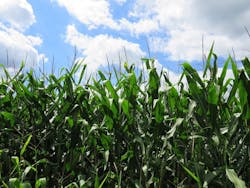Report Finds Farm Runoff Damages Midwest Drinking Water
A new report from the Environmental Working Group (EWG) found that the U.S. Department of Agriculture is failing to enforce a 1985 Farm Bill provision that was designed to prevent soil erosion and manage polluted runoff. The EWG investigation used satellite imagery to monitor erosion throughout Midwest farm lands and found that 60% of the pathways of highly erodible land under the compact in Minnesota, Indiana, Iowa and Illinois were unprotected and nearly half were scarred by gullies.
According to EWG, in a conservation compact made between farmers and taxpayers in the 1985 Farm Bill, farmers agreed to prevent soil erosion and polluted runoff from certain vulnerable croplands in return for farm subsidies.
“Farmers made a deal with taxpayers in 1985 to prevent soil erosion and polluted runoff in return for billions of dollars in farm subsidies,” Craig Cox, EWG’s vice president of agriculture and natural resources said. “But this conservation compact has languished, and as a result, the water and health of millions of Americans are at risk.”
The issue runs deeper than erosion, as the polluted runoff has the potential to contaminate drinking water with nitrates from fertilizers and create algal blooms from phosphorus.
EWG has proposed a new conservation compact for the 2018 Farm Bill that would require farmers and landowners applying for federal subsidies to implement conservation practices that protect drinking water. Under this new proposal, farmers would be required to prevent or heal ephemeral gullies, and keep a buffer of 50 ft between croplands and waterways.
“After 30 years, it’s more than fair to ask farmers to do more to prevent pollution in return for the generous support they get from taxpayers,” Cox said.


